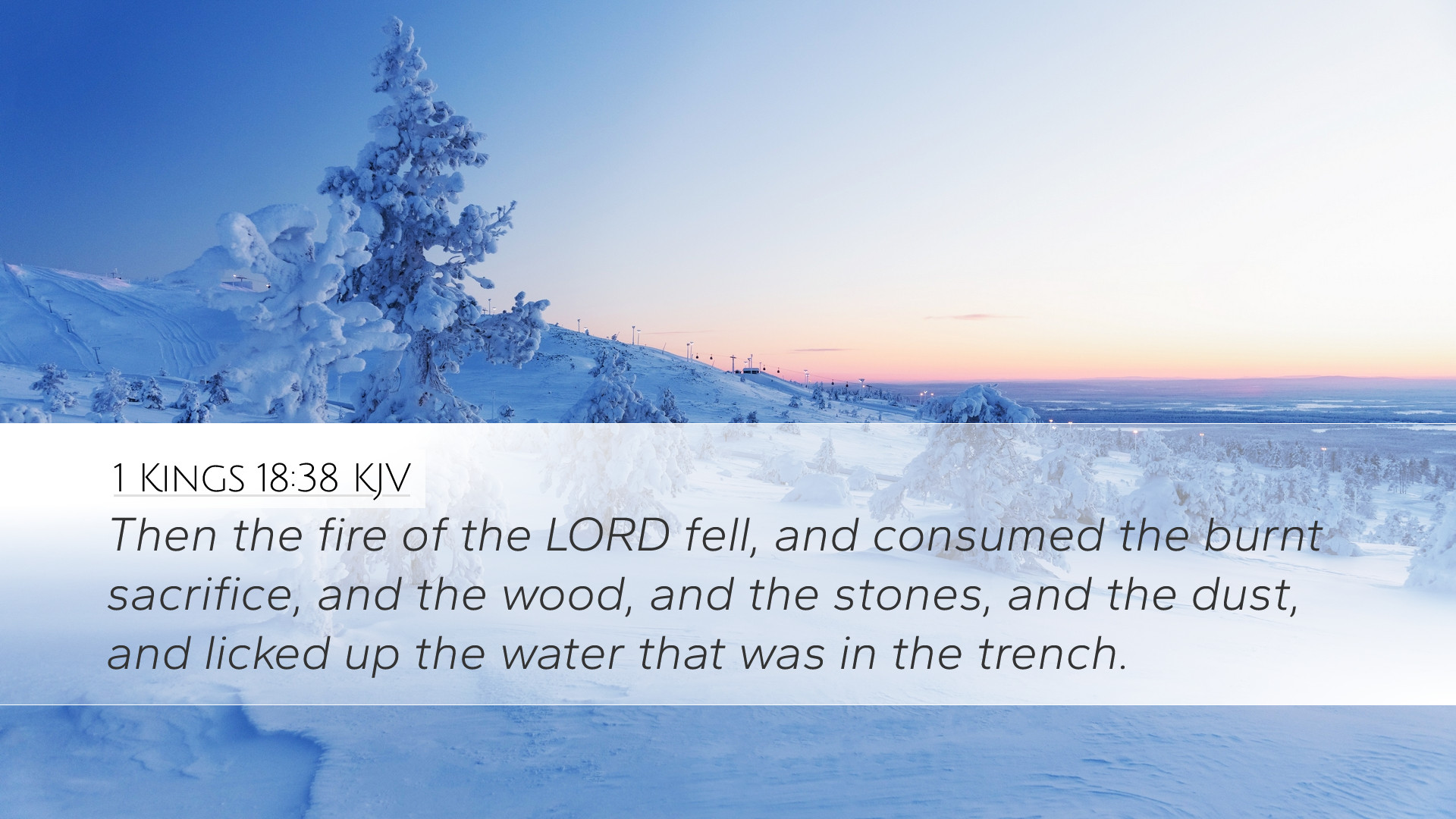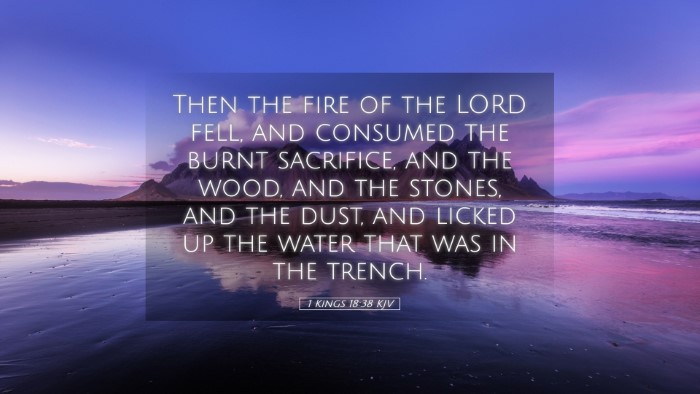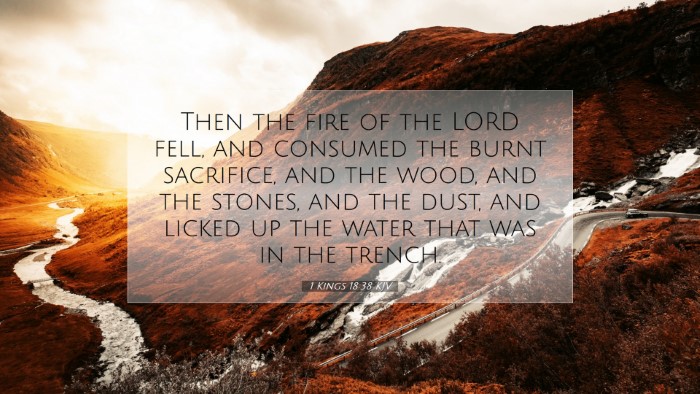Commentary on 1 Kings 18:38
"Then the fire of the Lord fell, and consumed the burnt sacrifice, and the wood, and the stones, and the dust, and licked up the water that was in the trench."
Contextual Overview
In 1 Kings 18, we witness a pivotal confrontation between the prophet Elijah and the prophets of Baal atop Mount Carmel. This chapter is a crucial moment in the history of Israel, as it highlights the struggle between true worship of Yahweh and the idolatrous practices of Baal worship endorsed by King Ahab and Queen Jezebel.
The verse in question, 1 Kings 18:38, serves as a climactic moment showcasing God's power and the validity of Elijah's mission. Through the consuming fire from heaven, God decisively demonstrates His sovereignty and supremacy over false gods.
Insights from Matthew Henry
Matthew Henry emphasizes the significance of God’s response to Elijah’s prayer and the miraculous fire that consumes the offering. He notes that:
- Divine Intervention: The fire represents God's immediate intervention in human affairs, demonstrating that He hears prayers and responds actively to His people.
- Recognition of True God: Henry suggests that this act was aimed at eliciting a response from the people of Israel, calling them back to repentance and recognition of the "Lord, He is God."
- Holistic Consumption: The fire consumed not only the sacrifice but also the wood, stones, and water, illustrating that God's power transcends natural barriers and limitations.
Insights from Albert Barnes
Albert Barnes provides a detailed exegesis on the theological implications of God's fire. He points out that:
- Symbolism of Fire: Fire often represents judgment and purity in Scripture. The consuming fire here signifies God's judgment on false worship and His purifying presence among His people.
- God's Sovereignty: Barnes underscores that the miracle serves to affirm that the God of Israel is the one true God, able to perform acts contrary to the laws of nature.
- Public Display of Power: This display of divine power was a public confession of God’s authority and was meant to provoke a national awakening among the Israelites regarding their fidelity to God.
Insights from Adam Clarke
Adam Clarke offers a comprehensive theological perspective on the event, focusing on the implications for worship and faith:
- Faith in Action: Clarke emphasizes Elijah's role as a man of faith whose fervent prayer precedes the miraculous event. He portrays the importance of faith in activating God's power and presence.
- God’s Prominence: The falling fire signifies God's willingness to reveal Himself powerfully to His people and to affirm His covenant relationship with them. It underscores His desire for an intimate and dynamic interaction with humanity.
- Call to Reformation: Clarke suggests that this miracle was intended to initiate spiritual reformation in Israel, driving the people toward renewing their commitment to God.
Theological Implications
The event captured in 1 Kings 18:38 is laden with theological implications that resonate throughout biblical history. It signals a turning point for Israel and serves as a reminder of God’s power in the face of human doubt and idolatry:
- Power of Prayer: The narrative reinforces the belief in the power of earnest prayer and dependence on God. Elijah’s prayer exemplifies a heart aligned with God's purposes.
- Worship and Idolatry: The contest at Mount Carmel is a foreboding reminder of the dangers of idolatry and the call to return to authentic worship. It compels modern believers to evaluate their own lives for "Baal" influences.
- Assurance of Restoration: The display of God’s consuming fire serves as an assurance of restoration and hope for the people of God, reminding them that even in their rebellion, God is ready to forgive and restore.
Applications for Today's Believers
This powerful event encourages today’s pastors, students, and theologians to reflect on their relationship with God and their response to His revelation:
- Responding to God's Call: Believers should be open to God's call for repentance and renewal, just as the Israelites were urged to turn back to Him.
- Embracing the Power of God: The assurance of God's active presence encourages believers to embrace faith in their requests and trust that God hears and responds.
- Courage in Confrontation: Like Elijah, believers are called to courageously confront the cultural and spiritual battles of their time with confidence in their God.
Conclusion
1 Kings 18:38 invites deep reflection on God's power and presence in our lives. The consuming fire is not just a historical event but a testament to God’s unyielding commitment to His people. It calls all believers toward a deeper faith, an active prayer life, and continual recognition of God's sovereignty over every aspect of existence.


